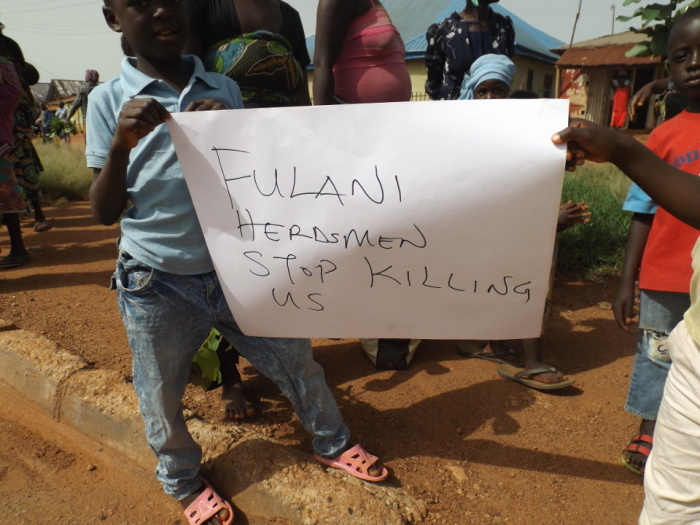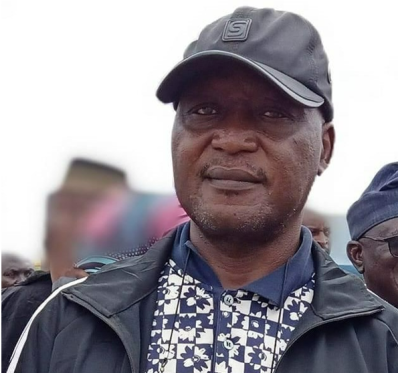Journalist arrested, charged after reporting on attacks against Christians in Nigeria

A Nigerian journalist faces prolonged detention allegedly for his reporting about attacks against predominantly Christian communities in Nigeria and the government’s response.
Luka Binniyat, a Nigerian Roman Catholic journalist and father who writes for the anti-communist Epoch Times, was arrested last week. On Tuesday, Binniyat was arraigned at the Barnawa Magistrate’s Court in Kaduna state. He was charged with cyberstalking, a charge that critics say is often used in the African country to silence the media.

On Nov. 4, Binniyat informed Epoch Times Africa Desk Editor Doug Burton that he was arrested and urged the editor to “contact all relevant persons.”
Burton elaborated on the circumstances leading up to Binniyat’s arrest and the dangers he faces in an interview with The Christian Post.
Burton attributed Binniyat’s arrest to an Oct. 29 article he wrote titled “In Nigeria, Police Decry Massacres as ‘Wicked’ But Make No Arrests.” The article is part of The Epoch Times’ coverage of the deadly persecution of Christian farming communities in the African country that human rights advocates say have escalated to near “genocidal levels” in recent years as thousands have been killed.
In the article, Binniyat pushed back on Kaduna’s Commissioner of Internal Security and Home Affairs Samuel Aruwan’s characterization of an attack on Christian farmers in the state as a “clash.”
The Nigerian government has long refuted claims by human rights activists that a religious genocide is taking place in Nigeria’s Middle Belt states, where radicals from the Fulani herding community have been accused of invading countless Christian farming communities. The government has long attributed attacks and reprisals as being part of decades-old farmer-herder clashes.
In his article, Binniyat included a quote from a Nigerian senator, who accused the Kaduna government of “using Samuel Aruwan, a Christian, to cause confusion to cover up the genocide going on in Christian Southern Kaduna by describing the measure as a ‘clash’” as opposed to a targeted act of violence against Christians.
“What he [Binniyat] did there is he showed that the commissioner was projecting a false narrative,” Burton explained. “For this reason, I think the authorities, though they knew they would get pushback for prosecuting a dissident journalist, they decided they had to do it because … they want to shut his voice down.”
Burton told CP that the journalist was accused of cyberstalking Aruwan. Cyberstalking is a federal offense.
“The magistrate ruled that he does not have authority to try the charge of cyberstalking because it’s a federal charge, it’s a federal statute. So the case will have to be transferred to a federal court. And so, therefore, in the meantime, he can’t get bail because the magistrate doesn’t have authority to give him bail since he doesn’t have authority over this crime.”
Sources Burton spoke to believe that the prosecution is using a “legal technicality to keep Luka in jail.”
“By having his charges presented first in a lower court, a district court where he was charged, they expected him to be charged with defamation and injurious falsehood,” Burton said. “These are statutes … in the criminal code in Nigeria and can be tried at the lower court level.”
“But the charge of … cyberstalking is a federal charge that … has to be issued by a higher court,” he continued. “And so by doing that deliberately, the prosecution knew that bail couldn’t be given, and that is the whole idea.”
On Monday morning, Binniyat “texted that he felt like his life was in danger,” Burton said.
Additionally, Binniyat said he had been held for five days in a very “cramped” and “dingy” cell that he described as “uncomfortable.” Binniyat further alleged that he hadn’t gotten much sleep.
“He texted to another person, another journalist I know named John Shiklam. And Shiklam said he feared for his life,” Burton detailed.
Based on conversations with other people who have faced detention for cyberstalking in Nigeria, Burton estimates that Binniyat could spend about five months in prison.
Burton specifically cited the case of Stephen Kefas, who “wrote something on Facebook that embarrassed” a government official. The government official claimed he was being cyberstalked and feared he could be attacked because of what Kefas wrote.
Burton indicated that prolonged detention could have an impact on Binniyat’s physical health.
“The folks who have to spend time in custody, they have to endure pretty harsh conditions and they get sick,” he warned.
Kefas contracted Hepatitis C while in prison, and members of the Adara tribe who spent time in prison caught malaria, typhoid and/or dysentery, Burton stressed.
“Based on what I have learned with my many conversations with Steven Kefas, the conditions in prison are not only uncomfortable, but they’re dangerous and toxic,” he stated. “The Adara elders were in a common cell with other criminals. They had no toilet. They have a sewer trench that goes through the middle of the cell, which serves as their toilet. Apparently, the prisoners don’t have proper protection from mosquitoes because many of them come out with malaria.”
Based on a conversation Burton had International Committee on Nigeria Executive Director Kyle Abts, who has delivered rations to prisoners in the past, “the prisons … and jails don’t provide food and water for the prisoners.”
“All their food and water has to be brought to them by their relatives,” he said.
Those without relatives or anyone to bring them food and water can “beg for charitable donations” from other prisoners.
Because Binniyat is “not wealthy,” Burton predicted “he will need assistance” in his legal proceedings.
“His legal bills will have to be paid by his friends. That would be the Southern Kaduna Peoples Union, SKPU, and also he will be getting some financial aid probably from the International Committee on Nigeria,” Burton detailed. “His friends and allies are … planning some kind of a legal defense fund, but it’s not clear who will take the lead.”
Binniyat’s arrest for cyberstalking is not the first time the journalist has faced legal headwinds for his reporting.
Burton recalled that Binniyat was previously imprisoned in 2017 for “breach of the peace.”
Binniyat had previously served as the bureau chief of Vanguard Newspapers until 2017.
“Then after he was imprisoned, I don’t think he got hired by any newspaper group because, the way it was explained to me, he’s considered a controversial reporter,” he said.
“So I started working with him in March this year, maybe May of this year. And I encouraged him to … compile reports for The Epoch Times. I worked with him as his editor. And so he’s published some very timely and factual reports about kidnappings and mass murders this year.”
Burton maintained that the central claim made by Aruwan highlighted in Binniyat’s Oct. 29 story, that the attacks on Christian farming communities in Nigeria are simply “clashes” between farmers and herders, is widely held and promoted by Nigerian government officials.
“That is a distorted representation of what’s really happening. In fact, there is a farmer-herder aspect to the violence,” the editor added. “But that discounts the fact that the preponderance of the attacks are sectarian in … nature.”
Ryan Foley is a reporter for The Christian Post. He can be reached at: ryan.foley@christianpost.com





























